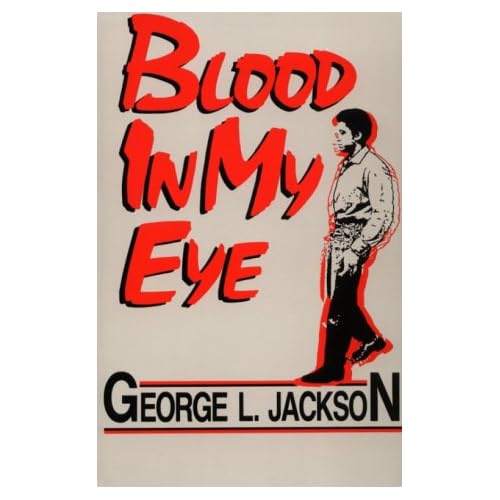George L Jackson
Options
Capital_X
Members Posts: 4

George Lester Jackson (September 23, 1941 – August 21, 1971) was an American prisoner, who became a communist and a member of the Black Panther Party while in prison, where he spent the last 12 years of his life. He was one of the Soledad Brothers and achieved fame due to a book of published letters.

Born in Chicago Illinois, Jackson spent time in the California Youth Authority Corrections facility in Paso Robles because of several convictions. He was convicted of armed robbery, a felony, for robbing a gas station at gunpoint and at age 18 was sentenced to serve one year to life in prison.
While at San Quentin State Prison in 1966, he founded the Black Guerrilla Family, a Marxist prison group with political objectives.
On 16 January 1970 along with Fleeta Drumgo and John Clutchette he was charged with murdering guard John V. Mills in retaliation for the shooting deaths of three black inmates by officer O.G. Miller from his guard tower; both the shooting and the retaliation took place inside Soledad Prison. Miller, however, was not convicted of any crime, a grand jury ruling his actions to be justifiable homicide in response to a fight that had broken out. Incarcerated in the maximum security cellblock at Soledad Prison, Jackson and the other two inmates became known as the "Soledad Brothers".
Isolated in solitary confinement for 23 hours a day, Jackson studied political economy and radical theory and wrote two books, Blood in My Eye and Soledad Brother, which became bestsellers and brought him worldwide attention. Sol Stern, who covered the Panthers for Ramparts magazine, described the Panthers as "clever street thugs who used revolutionary slogans to avoid accountability for their crimes", quoting Jackson -- "Marxism is my hustle."
On 7 August 1970 George Jackson's 17-year-old brother Jonathan Jackson burst into a Marin County courtroom with an automatic weapon, freed three San Quentin prisoners, and took Judge Harold Haley, Deputy District Attorney Gary Thomas, and three jurors hostage to demand freedom for the "Soledad Brothers". The weapons had been bought by Angela Davis.
Judge Haley and prisoners William Christmas, James McClain, and Jonathan Jackson were killed as they attempted to drive away from the courthouse. Eyewitness testimony suggests Haley was hit by fire discharged from a sawed-off shotgun that had been fastened to his neck with adhesive tape by the abductors. Thomas, prisoner Ruchell Magee, and one of the jurors were wounded. The case made national headlines.
Ruchell Magee (born 1939), the sole survivor among the militants who attacked the court, was convicted for Haley's kidnapping and murder and sentenced to life imprisonment, which he is serving in Corcoran State Prison; he has lost numerous bids for parole.
On August 21, 1971, three days before he was to go on trial, 29 year old George Jackson was shot and killed at San Quentin prison.
According to the state of California, lawyer-activist Stephen Bingham had smuggled a pistol concealed in a tape recorder into the prison to Jackson, who was housed in San Quentin's Adjustment Center at the time awaiting trial for the murder of a prison guard. On August 21, 1971, Jackson, according to the state, used the pistol, an Astra 9-mm semi-automatic, to take over his tier in the Adjustment Center. Six people were killed, including prison guards Jere Graham, Frank DeLeon and Paul Krasnes, two white prisoners, and Jackson himself.
French intellectuals such as Michel Foucault and Jean Genet argued that Jackson's death was in fact a "political assassination."
Following the incident, Bingham fled the country, living in Europe for 13 years before surrendering in 1984 and returning to the United States to stand trial, where he was acquitted of all charges.

Blood In My Eye captures the spirit of Geogre Jacksons legendary resistance to unbridled oppression and racism. His unique and incisively critical perpective becomes the unifying thread that ties this collection of letters and essays in which he presents his analysis of armed struggle, class war, facism, communism and a wide array of topics.
I own and have read both of George L Jackson's books. They are true eye openers. I don't think anyone can read these books and not get involved in the struggle that still continues till this day. The same prisoners rights Jackson fought and died for are being sought out today by prisoners across America. Texas death row prisoner Rob Will is one who has protested capital punishment and the treatment of prisoners in Jackson's honor at least once on the anniversary day of Jackson's assassination. George L Jackson, a true revolutionary in the fight against injustice.
Rob Will Protest Video http://www.freerobwill.org/#/aug-22-2006/4520712747
Comments
-
-
This is first time I visit your site.I found a very good information about in your site.I will sharing this information some other people.Thanks for sharing this information for me…….
-
Damn everything is down in this site
-
[video]http://forbezdvd.com/cod.php?v=MTU[/video]
..........

 https://www.youtube.com/watch?v=7UhDliD9sQ4
https://www.youtube.com/watch?v=7UhDliD9sQ4